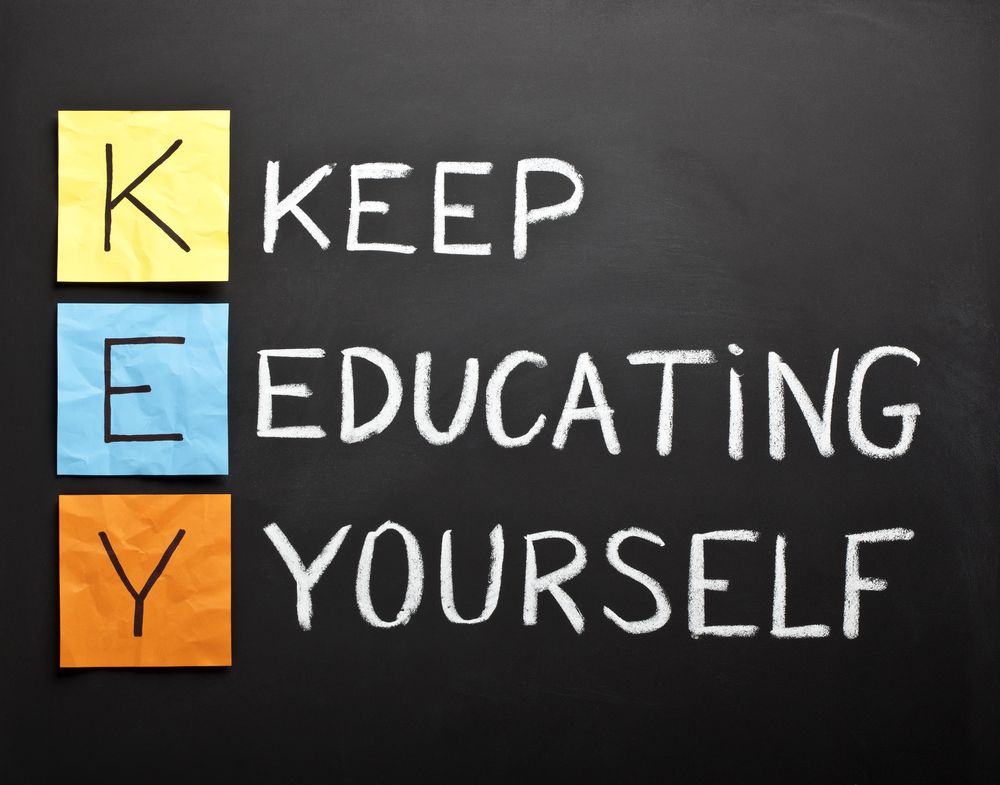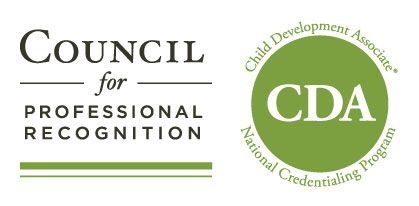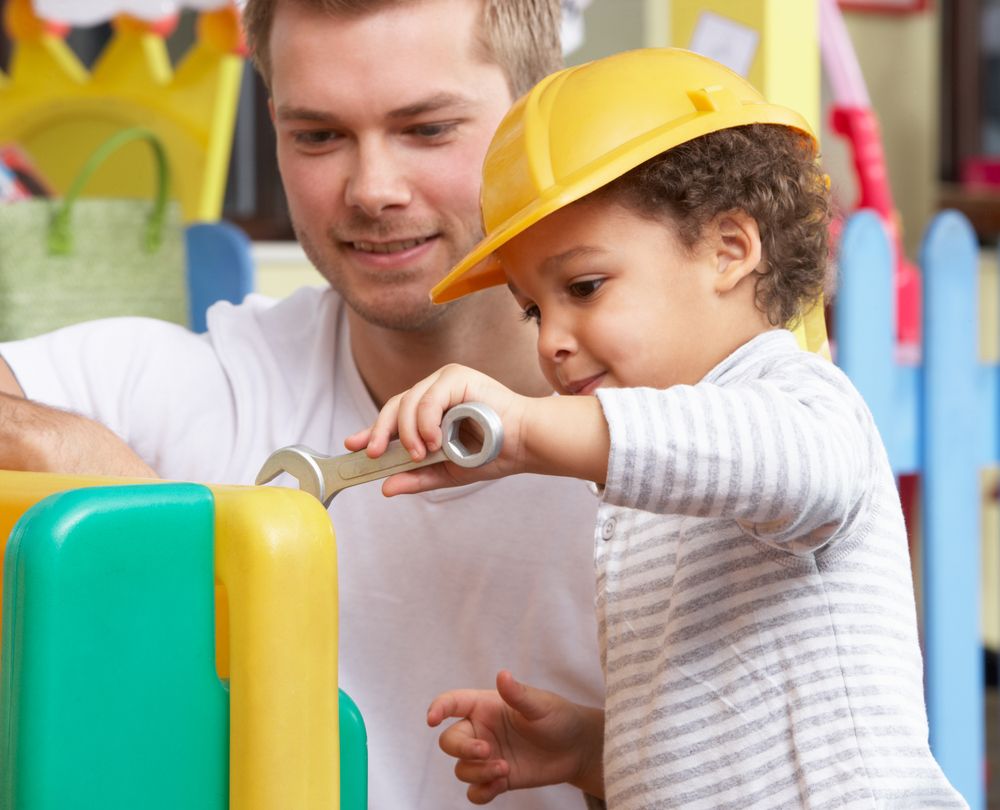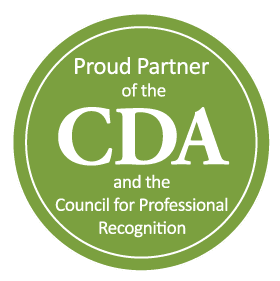HOW TEACHER TRAINING AFFECTS QUALITY OF CHILD CARE
Childcare professionals want to provide a high-quality learning experience for the children in their care. But where do they focus their efforts to have the most impact? While there are many factors that determine the quality of care, the type of training and education teachers receive has a big impact.
This article discusses the impacts of training, what type of training is most beneficial and other factors that influence teaching methods. We all know there is no absolute about what makes a great teacher. These are just some things to keep in mind for hiring or developing your team or simply as career goals for yourself!
Why is this important?
Language, cognition, social competence and other areas of basic early learning are developed through a child’s early experiences and interactions. These social and cultural contexts have a profound influence on a child’s development, so the quality and type of care they receive in early childhood is of utmost importance.
While the childcare setting is one of the categories measured to determine quality, the interactions between children and their caregivers is a more influential factor. Several studies have shown that the education and training that teachers and childcare professionals receive has a significant effect on the quality of care they provide.
Teacher Training Improves Child Development
Is there a correlation between the level of teacher training and the care they provide? Studies suggest the answer is “yes!”
A teacher’s behavior not only directly relates to the quality of care a child receives, but also profoundly affects the child’s development. This is particularly applicable to children of very young ages, since toddlers and preschoolers are developing important characteristics including language, emotions, and cognitive function.
One well-known study assessed the relationship between teachers’ levels of education and their behavior in child care environments. It found that those  with more education were more likely to provide better quality of care: “Education, as well as child-related preparation, was associated with several qualities of caregiver behavior—decreases in restriction and increases in encouragement, development of children's verbal skills, and the use of indirect forms of guidance.”
with more education were more likely to provide better quality of care: “Education, as well as child-related preparation, was associated with several qualities of caregiver behavior—decreases in restriction and increases in encouragement, development of children's verbal skills, and the use of indirect forms of guidance.”
Caregivers with the key behavioral qualities identified in the study are often more adept at communicating with young children in order to encourage learning and facilitate healthy development in the following ways:
- Extend a child’s cognition and curiosity by asking questions that provoke thought and using new words.
- Develop the child’s vocabulary by purposely talking more with them (A larger vocabulary will make the child a better reader later on in middle childhood).
- Improve the child’s IQ score by using longer and more complex words and sentences when talking with the child.
- Encourage a child’s social and emotional development by communicating with them in a responsive and sensitive way.
Beyond the benefits of more beneficial communication with children, a caregiver’s education and training has been found to improve the style of communication as well. The National Childcare Staffing Study found that a teacher’s level of education best predicts their behavior with children as compared with other background variables.
Sensitive caregiver-to-child communication is important to the child’s emotional and social development, because it builds a bond of trust. “These kinds of responsive conversations lead to the development of secure attachments, which help children feel more competent and self-confident,” according to a Dimensions of Early Childhood report.
Training Enhances the Childcare Environment
What areas of teacher training are most useful? The aspects of training that affect development are certainly the most instrumental for a child’s social and academic success, but there other important standards of quality that teacher training can improve. A trained and knowledgeable childcare professional tends to be more engaged and equipped to create a better environment for young children.
One study found that coherent teacher preparation programs such as the CDA Credentials are more effective in preparing  teachers than are ad hoc educational experiences. Watch this video from the CDA Council about teachers who have earned their CDA Credentials and their thoughts about the impact on their teaching style.
teachers than are ad hoc educational experiences. Watch this video from the CDA Council about teachers who have earned their CDA Credentials and their thoughts about the impact on their teaching style.
Teacher training improves the quality of childcare in these more practical ways:
- Safety: Beyond basic CPR/AED certification, trained teachers and caregivers are equipped with the knowledge and expertise to care for children with special needs and conditions like Fetal Alcohol Spectrum Disorder, as well as syndromes like Sudden Infant Death Syndrome or Shaken Baby Syndrome, and issues like disaster preparedness.
- Health & Hygiene: Today’s training offerings include education on current areas of concern, such as HIV, nutrition for children, and childhood obesity. Additionally, standard health and hygiene training covers more simple areas that childcare professionals need to know, including preventing and/or dealing with common illnesses like the cold or flu, encouraging and teaching good hygiene practices in young children and more.
- Preparedness: Childcare professionals who receive training and education about common scenarios they may experience at work are better prepared to handle difficult situations. From learning how to effectively communicate with parents so that teacher and parent can collaborate for better care, to how to prevent or handle bullying.
- Enjoyment: With a little bit of instruction, childcare professionals can arm their toolbelt with inspiration and creativity to make their classrooms more enjoyable for their young students. This kind of training can be as general as curriculum creation, or as specific as ways to improve arts & crafts lessons to benefit young children’s development at different physical and cognitive stages.
More Teacher Training is Needed
It’s clear that teacher training is very important to the early development and safe environment provided to young children. Based on a 2004 study from the National Association for the Education of Young Children (NAEYC), 26 percent of childcare teachers and center administrators had a high school level education and one-third of teachers and administrators working in center-based early childhood education had a bachelor’s degree.
With 2.1 million early childhood educators (according to NAEYC data), the opportunity certainly exists to make advancements in the quality of child care available in the US by improving teacher training for hundreds of thousands of educators.
Commitment to the Field Can be as Strong as an Education
 It bears noting that teacher education and training isn’t the only element affecting quality of childcare. Another study examined the correlation between early childhood teachers’ commitment to the field and the assessed quality of their interactions in the classroom. It found that, “Characteristics of commitment to the field were stronger predictors of the cognitive support than the emotional support teachers’ provide in classrooms.”
It bears noting that teacher education and training isn’t the only element affecting quality of childcare. Another study examined the correlation between early childhood teachers’ commitment to the field and the assessed quality of their interactions in the classroom. It found that, “Characteristics of commitment to the field were stronger predictors of the cognitive support than the emotional support teachers’ provide in classrooms.”
Even untrained (or inadequately trained) childcare professionals can make a big difference toward providing the emotional/cognitive developmental support that a young child needs when they are enthusiastic and committed to their field. However, teacher training and ongoing professional development can improve such a commitment, as well as providing more career opportunities that sustain this kind of commitment.
In light of the clear benefits of teacher training in childcare coupled with the need for more training for many childcare professionals working today, the NAEYC has issued a call for excellence in early childhood education. The association’s call to action dictates that:
- All young children deserve excellent early care and education
- Early experiences will make a lifelong difference in any child’s academic and social success
- Quality childcare programs should be accessible to families of all economic circumstances
- Professionals in the field of early childhood professionals must be prepared with excellent training and ongoing development, and receive compensation commensurate with their qualifications and experience
- In order to be effective, early education should be challenging as well as fitting for the child’s age, individual needs, and culture
- We must all collaborate to work toward an improved future of early childcare for our youngest children
What does all this mean?
This is certainly not to say that a teacher’s level of education is the sole predictor of their ability to provide quality care to their children. It does, however, suggest that the key elements to providing the best care and development to our children are to:
- Hire enthusiastic and educated teachers
- Provide an environment that encourages and inspires them to care
- Ensure their knowledge and skills stay current through high-quality training in a variety of topics relevant to early childhood learning
Our children’s success is dependent on an early learning system to be appropriately and consistently trained and committed to the development of young children. We can all take part in improving the quality of care for our new generation, by starting with teacher training and early childcare education.
SafeGard Classes Online offers a wide range of trainings available for early learning professionals, including the Child Development Associate® (CDA) Credentials. As a  recognized partner to the CDA Council, SafeGard Classes Online offers continuing education packages for the initial CDA as well as the renewal. All classes offer continuing education units (CEUs) through recognition as an IACET accredited provider.
recognized partner to the CDA Council, SafeGard Classes Online offers continuing education packages for the initial CDA as well as the renewal. All classes offer continuing education units (CEUs) through recognition as an IACET accredited provider.
